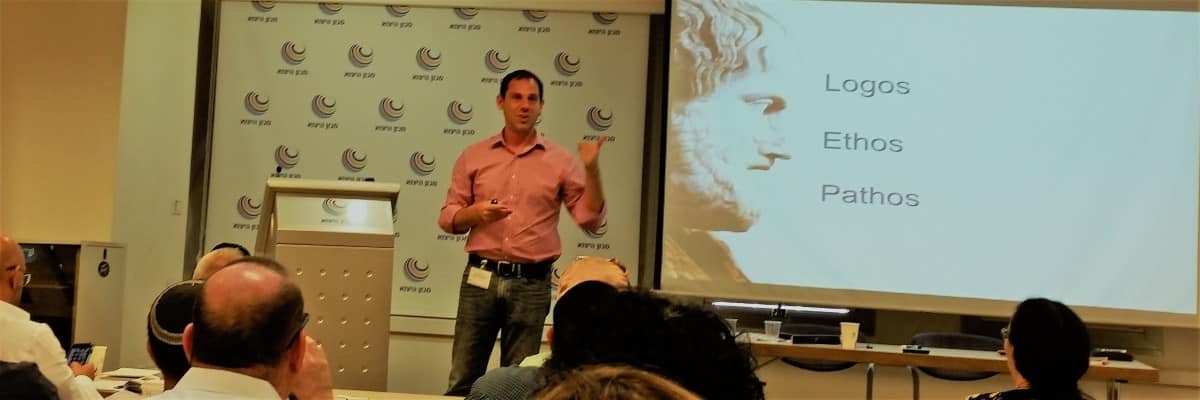
Effective communication: The (modern) ancient Greek way
When we work on a client presentation’s structure and flow, we try to balance many aspects to make it clear and persuasive. I usually tell clients about Aristotle, the famous Greek philosopher.
Logos, Ethos and Pathos
Aristotle claimed that the three key aspects of persuasive communication are pathos, logos and ethos. While they may seem like fashionable ‘buzzwords,’ they have, in fact, formed the bedrock of effective communication for over 2000 years.
Logos is the idea of logical appeal. In terms of persuading, it means that you must have evidence, facts, etc. to back up your pitch. Companies tend to put emphasis on this in presentations.
Ethos is the ethical appeal. Convincing the audience via the presenter’s character and credibility. This would mean your academic degrees, background, personal success stories, and the people who would vouch for you.
Pathos is the emotional appeal. It means to persuade an audience by appealing to their emotions and comes from the Greek for suffering and experience. When you use pathos, you connect with your audience emotionally. This is best achieved through telling a story.
Persuasive communication:
You’ll be surprised at what audiences value the most
In his analysis of the most successful Ted Talks, Carmine Gallo, author of “Talk Like Ted,” has come to the conclusion that the most successful Ted Talks are based on:
- 65% pathos
- 25% logos
- 10% ethos
Nearly two thirds of the presentation should be based on telling a story. While we are naturally inclined to have 99% of the presentation crammed with data, Gallo claims that “striking a balance between logic and emotion will convince more people to buy into your idea.”
How is this relevant to the medical world?
The idea is that you are more likely to get an emotional response from your audience if you can connect with them through stories. You might be thinking at this point: How is this relevant to the medical world? Is it not true that medical products are invested in and procured based on solid science and the team’s experience?
But story does matter.
In every presentation, you need to find a way to touch on the emotional aspects of your pitch to make it work. These could be interesting anecdotes, telling the audience your personal story of why you are involved, telling the story of a patient, doctor or anyone else that may benefit from it. Not just a statistic.
Adding stories can transform a dull presentation to an interesting one and add value to your company. Above all, getting the right blend of ethos, pathos and logos could lead to your presentation and its outcome being a success.





